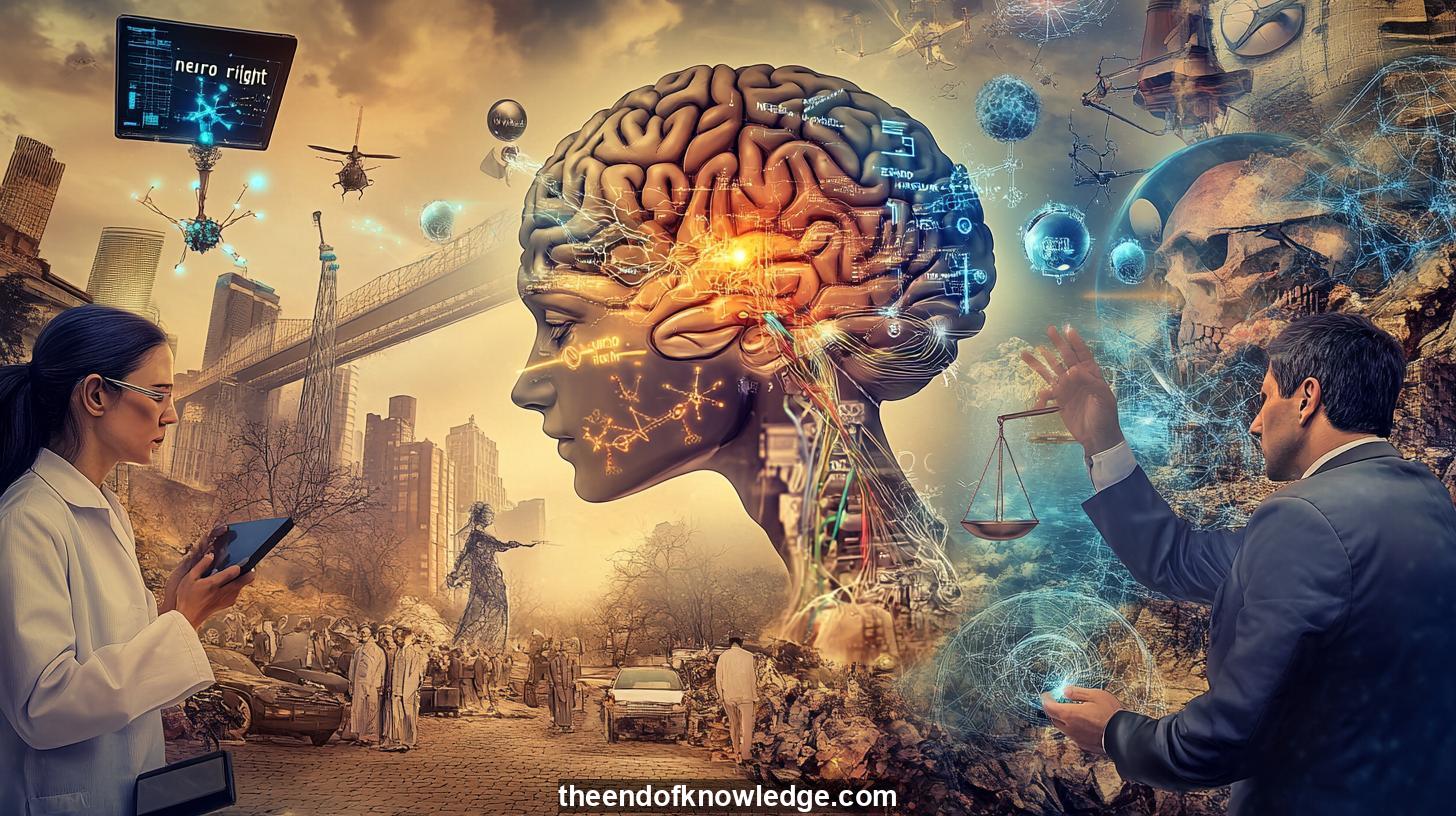 >
>
Concept Graph, Resume & KeyIdeas using DeepSeek R1 :
Resume:
The discussion revolves around the integration of artificial intelligence (AI) and neuroscience, particularly focusing on brain-computer interfaces (BCI) and their potential to revolutionize human evolution. Juan Martinez, an expert in biomedical engineering and BCI, shares his experiences and insights into the development of electrodes and neural interfaces, emphasizing the challenges of creating non-invasive, biocompatible electrodes. The conversation delves into the ethical implications of merging AI with the human brain, questioning whether such integration is a natural evolution of the species. The role of AI in decoding brain signals and the potential for hybrid intelligence, combining human and machine capabilities, is explored. The ethical and philosophical questions surrounding consciousness, free will, and the future of human evolution are also discussed. The conversation highlights the importance of balancing technological advancement with ethical considerations to ensure that AI and BCI technologies benefit humanity.30 Key Ideas:
1.- Brain-computer interfaces (BCI) are revolutionizing the interaction between the human brain and artificial intelligence (AI).
2.- The development of biocompatible electrodes is a critical challenge in BCI technology.
3.- Non-invasive BCI systems rely heavily on AI to decode and interpret brain signals.
4.- The ethical implications of integrating AI with the human brain are significant and complex.
5.- The concept of hybrid intelligence combines human cognition with machine learning capabilities.
6.- Consciousness and its emergence from brain activity remain a profound scientific mystery.
7.- The integration of AI and neuroscience challenges traditional notions of human identity and evolution.
8.- Juan Martinez’s work in biomedical engineering and BCI highlights the interdisciplinary nature of the field.
9.- The development of BCI technologies raises questions about privacy and neuro-rights.
10.- AI systems like NeuralLink are pushing the boundaries of brain-machine interaction.
11.- The future of BCI could involve nanotechnology and implantable devices for sensing and stimulation.
12.- Ethical considerations must guide the development and deployment of advanced BCI technologies.
13.- The potential for AI to enhance human cognition and resolve societal issues is immense.
14.- However, the misuse of AI could exacerbate existing social and ethical challenges.
15.- The study of consciousness is essential for understanding the implications of BCI and AI.
16.- BCI technologies could revolutionize the treatment of neurological disorders and injuries.
17.- The integration of AI and neuroscience requires a balanced approach to innovation and ethics.
18.- Public awareness and education are crucial for the responsible development of BCI technologies.
19.- The future of human evolution may involve the merging of biological and artificial systems.
20.- The ethical framework for AI and BCI must be developed collaboratively by scientists, philosophers, and policymakers.
21.- The potential for AI to address global challenges is vast but requires careful regulation.
22.- BCI technologies could enable new forms of communication and collaboration between humans and machines.
23.- The study of neural networks in the brain informs the development of AI algorithms.
24.- The ethical debate surrounding AI and BCI is ongoing and multifaceted.
25.- The development of BCI technologies must prioritize human well-being and dignity.
26.- The integration of AI and neuroscience could lead to new forms of human-machine collaboration.
27.- The potential for AI to enhance human capabilities is both exciting and unsettling.
28.- The ethical implications of BCI and AI must be addressed proactively.
29.- The future of BCI and AI will depend on interdisciplinary collaboration and ethical foresight.
30.- The integration of AI and neuroscience represents a significant step in human evolution.
Interviews by Plácido Doménech Espí & Guests - Knowledge Vault built byDavid Vivancos 2025